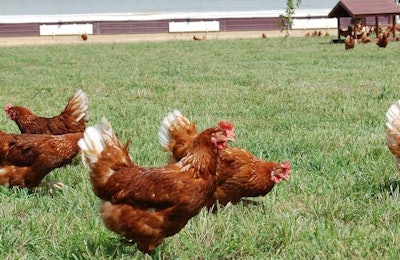
Glenrath Farms has a profitable egg business, one of the U.K.’s largest, whose hens lay around 1.5 million eggs per day. John Campbell, the company's chairman, told the audience at the United Egg Producers’ Annual Board Meeting & Executive Conference in Miami Beach, Florida, on October 18, “I strongly advise any egg producer to avoid free range. It (free-range rearing for hens) is a disaster waiting to happen.”
What makes these statements remarkable is the fact that Glenrath Farms has made a lot of money supplying free-range eggs to U.K. consumers. When asked about why his company got involved in free-range egg production, given Campbell’s opinion, he said, “We did it because we made a lot of money.” He explained that while free-range production can be very profitable, it requires a lot of small flocks which are very hard to manage. Giving the hens outdoor access increases disease risk, exposes them to predators and requires more labor and management.
Currently, U.K. consumers can purchase eggs produced in enriched cages, cage-free “barn” systems and free-range conditions. UK retailers have now committed to stop selling cage produced eggs in the future and free-range eggs have been more popular with consumers than have been the so-called “barn” eggs produced by hens housed in cage-free systems within a poultry house.
Multi-tier aviaries advised for cage-free hens
Campbell said that he thinks that multi-tier aviaries are the best way to house cage-free hens. He said that the U.K. market is already 60 percent cage-free, with much of that free range. The purchase pledges by U.K. retailers will likely lead to an entirely cage-free egg market in the future.


















